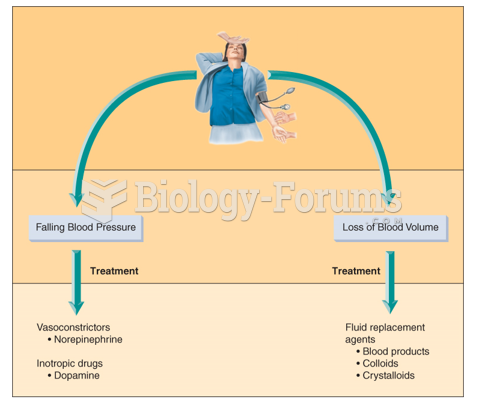|
|
|
As the western states of America were settled, pioneers often had to drink rancid water from ponds and other sources. This often resulted in chronic diarrhea, causing many cases of dehydration and death that could have been avoided if clean water had been available.
Alcohol acts as a diuretic. Eight ounces of water is needed to metabolize just 1 ounce of alcohol.
Individuals are never “cured” of addictions. Instead, they learn how to manage their disease to lead healthy, balanced lives.
Stevens-Johnson syndrome and Toxic Epidermal Necrolysis syndrome are life-threatening reactions that can result in death. Complications include permanent blindness, dry-eye syndrome, lung damage, photophobia, asthma, chronic obstructive pulmonary disease, permanent loss of nail beds, scarring of mucous membranes, arthritis, and chronic fatigue syndrome. Many patients' pores scar shut, causing them to retain heat.
 Vertebral compression Fractures of the spine (vertebra) can cause severe ”band-like” pain that radia
Vertebral compression Fractures of the spine (vertebra) can cause severe ”band-like” pain that radia
 Two important changes occur in the upper airway in croup:The epiglottis swells, thereby occluding th
Two important changes occur in the upper airway in croup:The epiglottis swells, thereby occluding th






